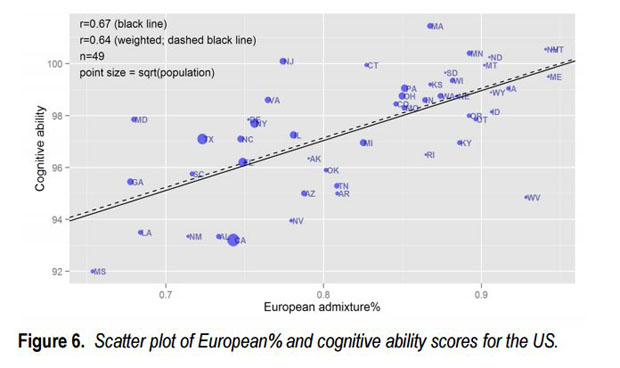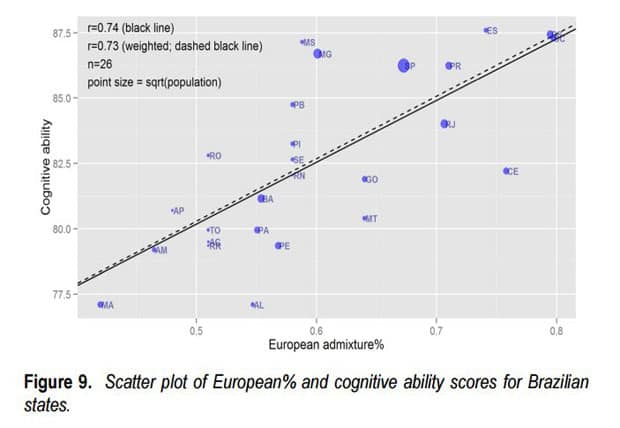Admixture in the Americas: Regional and National Differences
John Fuerst and Emil O. W. Kirkegaard, ResearchGate,
Abstract
We conducted novel analyses regarding the association between continental racial ancestry, cognitive ability and socioeconomic outcomes across 6 datasets: states of Mexico, states of the United States, states of Brazil, departments of Colombia, sovereign nations and all units together. We find that European ancestry is consistently and usually strongly positively correlated with cognitive ability and socioeconomic outcomes (mean r for cognitive ability = .708; for socioeconomic well-being = .643) (Sections 3-8). In most cases, including another ancestry component, in addition to European ancestry, did not increase predictive power (Section 9). At the national level, the association between European ancestry and outcomes was robust to controls for natural-environmental factors (Section 10). This was not always the case at the regional level (Section 18). It was found that genetic distance did not have predictive power independent of European ancestry (Section 10). Automatic modeling using best subset selection and lasso regression agreed in most cases that European ancestry was a non-redundant predictor (Section 11). Results were robust across 4 different ways of weighting the analyses (Section 12). It was found that the effect of European ancestry on socioeconomic outcomes was mostly mediated by cognitive ability (Section 13). We failed to find evidence of international colorism or culturalism (i.e., neither skin reflectance nor self-reported race/ethnicity showed incremental predictive ability once genomic ancestry had been taken into account) (Section 14). The association between European ancestry and cognitive outcomes was robust across a number of alternative measures of cognitive ability (Section 15). It was found that the general socioeconomic factor was not structurally different in the American sample as compared to the worldwide sample, thus justifying the use of that measure. Using Jensen’s method of correlated vectors, it was found that the association between European ancestry and socioeconomic outcomes was stronger on more S factor loaded outcomes, r = .75 (Section 16). There was some evidence that tourist expenditure helped explain the relatively high socioeconomic performance of Caribbean states (Section 17).
[Editor’s Note: The figures below are from the paper. For comments on the paper and additional figures, see here.]


















